React JS Course Syllabus For Beginners And Advanced
4.9 out of 5 based on 10788 votesLast updated on 3rd Apr 2024 21.8K Views
- Bookmark

Explore React JS from basics to advanced concepts with our comprehensive course syllabus, designed for beginners and advanced learners.
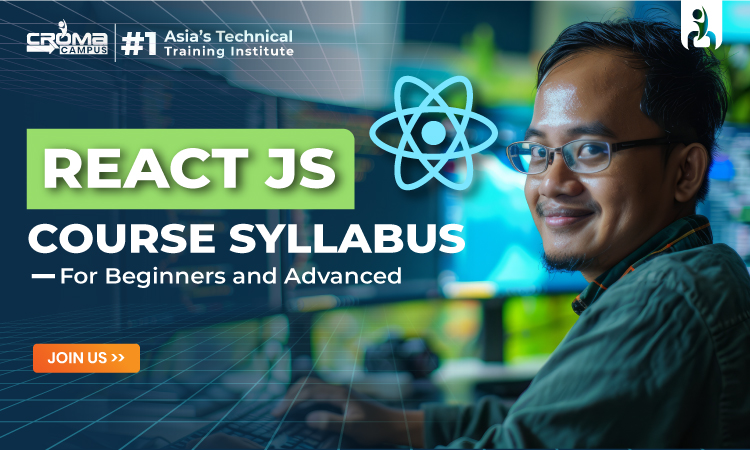
Introduction
React JS has rapidly revolutionized the landscape of web development. This technology has emerged as a dominant force in building interactive and scalable user interfaces. Developed and maintained by Meta, React's component-based architecture, declarative approach, and efficient virtual DOM have made it a favourite amongst developers worldwide. Moreover, by delving into React's rich ecosystem, developers can unlock vast opportunities to build dynamic web applications, mobile apps, and even desktop applications. Furthermore, React professionals can establish a solid foundation for success in the ever-evolving field of modern web development.
This section on aims to provide a comprehensive understanding of the React JS Online Course, its fundamentals, advanced concepts, and practical applications.
React JS Course Syllabus For Beginners
This React JS course has been designed for beginners who want to learn how to build dynamic and interactive web applications using React. Throughout this course, students can gain a solid foundation in React concepts, components, state management, etc. through hands-on projects and exercises.
Course Syllabus:
Introduction to React (10 hours)
- Overview of React and its benefits
- Setting up a development environment
- Understanding JSX syntax
- Creating and rendering React components
- Introduction to React hooks (useState, useEffect)
Component-based Architecture (15 hours)
- Understanding the concept of components
- Props and state management in React
- Functional components vs. class components
- Creating reusable components
- Component lifecycle methods
Handling Events and Forms (10 hours)
- Event handling in React
- Forms and controlled components
- Handling user input with forms
- Form validation techniques
React Router (10 hours)
- Introduction to React Router
- Setting up routes in a React application
- Creating nested routes
- Implementing route parameters and query strings
- Using NavLink and Redirect components
State Management with Redux (20 hours)
- Introduction to Redux and its principles
- Setting up Redux in a React application
- Actions, reducers, and the store
- Connecting React components to Redux
- Asynchronous actions with Redux Thunk
React Hooks (15 hours)
- Understanding React hooks in depth
- useState, useEffect, useContext, and more
- Custom hooks and their usage
- Best practices for using hooks
Project Work (20 hours)
- Applying learned concepts to real-world projects
- Building a multi-page web application using React
- Integrating React with external APIs
- Project presentations and feedback sessions
By the end of this course, students are able to gain a strong understanding of React fundamentals, component-based architecture, state management. Moreover, they will be able to build robust web applications using React.
React JS Course Syllabus For Advanced
This advanced React JS course is tailored for developers who have a solid understanding of React fundamentals. This training program is perfect for those who want to deepen their knowledge by exploring advanced topics and best practices. Furthermore, preparing for the React JS Interview Questions and answers further solidifies one’s knowledge and skill development. In this course, participants will delve into complex React concepts, state management techniques, performance optimization, and advanced patterns through hands-on projects and practical exercises.
Course Syllabus:
Advanced Component Patterns (15 hours)
- Higher-order components (HOCs) and their usage
- Render props pattern and its benefits
- React's context API for state management
- Using compound components for flexible UI design
- Patterns for code reuse and maintainability
Advanced State Management (20 hours)
- Exploring alternative state management libraries (MobX, Recoil)
- Implementing state management patterns with Context API
- Redux middleware and advanced usage
- Asynchronous state management with Redux-Saga or Redux-Thunk
- Optimistic updates and handling complex state logic
Performance Optimization (15 hours)
- Identifying performance bottlenecks in React applications
- Memoization techniques with useMemo and useCallback
- Virtualization and lazy loading for large data sets
- Code splitting and lazy loading of components
- Profiling React applications for performance improvements
Server-Side Rendering (SSR) and Next.js (20 hours)
- Understanding the benefits of server-side rendering
- Setting up server-side rendering with Next.js
- Pre-rendering and data fetching strategies in Next.js
- SEO optimization techniques for SSR applications
- Building full-stack React applications with Next.js
Testing React Applications (15 hours)
- Overview of testing principles and methodologies
- Unit testing React components with Jest and Enzyme
- Integration testing with React Testing Library
- End-to-end testing with Cypress
- Test-driven development (TDD) practices
Advanced Project Work (20 hours)
- Applying advanced React concepts to real-world projects
- Building scalable and maintainable React applications
- Performance optimization and testing of project applications
- Project presentations and peer reviews
This advanced React JS course equips participants with the skills and knowledge needed to tackle complex React projects, optimize application performance, and implement best practices in React development.
You May Also Read These Posts:
Full Stack Developer Interview Questions
Java Full Stack Developer Course Syllabus
Mern Stack Developer Interview Questions
Why Learn React JS?
Learning React JS offers numerous benefits, making it a valuable skill for both beginners and experienced developers alike.
Here are several reasons why learning from the React JS Online Course is advantageous:
Popularity and Market Demand
React JS is one of the most popular JavaScript libraries that is popularly used for building user interfaces. Its widespread adoption by companies like Meta, Instagram, Airbnb, and Netflix has led to high demand for React developers in the job market.
Component-Based Architecture
Furthermore, React's component-based architecture promotes reusability, modularity, and maintainability of code. Moreover, Developers can easily create complex user interfaces by composing small, self-contained components.
Declarative and Efficient
React utilizes a declarative approach. This feature allows developers to describe the desired UI state, and React takes care of updating the DOM efficiently. This leads to better performance and improved development productivity.
Virtual DOM
In addition, React's virtual DOM efficiently updates only the necessary parts of the actual DOM. This minimizes browser reflows and enhancing application performance, especially in large-scale applications.
Rich Ecosystem
React has a vast ecosystem of libraries, tools, and community support. This makes it especially easy to integrate with other technologies and extend its capabilities. Moreover, Developers can leverage tools like Redux for state management, React Router for navigation, and many more.
Cross-Platform Development
Additionally, React can be used to build not only web applications but also mobile and desktop applications. With frameworks like React Native and Electron, developers can use their React skills to build native mobile apps for iOS and Android. Furthermore, professionals trained in React can build desktop apps for Windows, macOS, and Linux.
Continuous Improvement
React is actively maintained by Meta and a large community of developers, ensuring regular updates, bug fixes, and performance enhancements.
Conclusion
To summarise, learning React JS and preparing for React JS Interview Questions is a wise investment for developers seeking to enhance their skills and advance their careers. With its popularity, efficiency, rich ecosystem, and cross-platform capabilities, React empowers developers to build high-quality, scalable applications that meet the demands of today's dynamic web development landscape.
Subscribe For Free Demo
Free Demo for Corporate & Online Trainings.
Your email address will not be published. Required fields are marked *
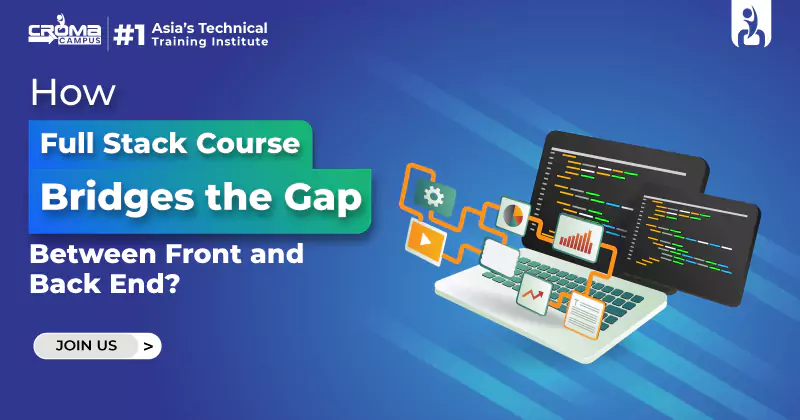
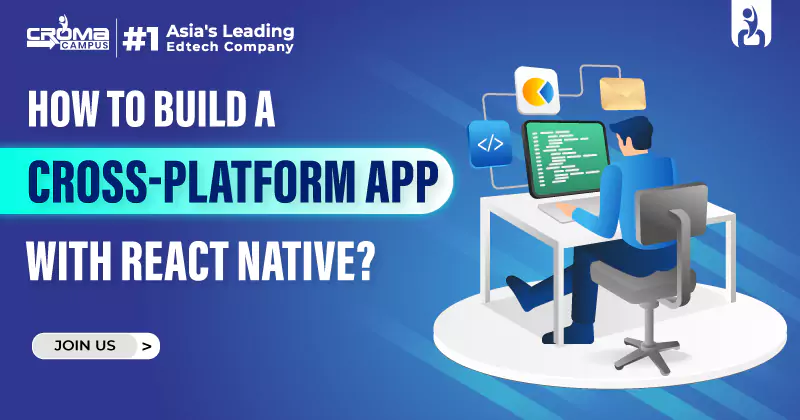


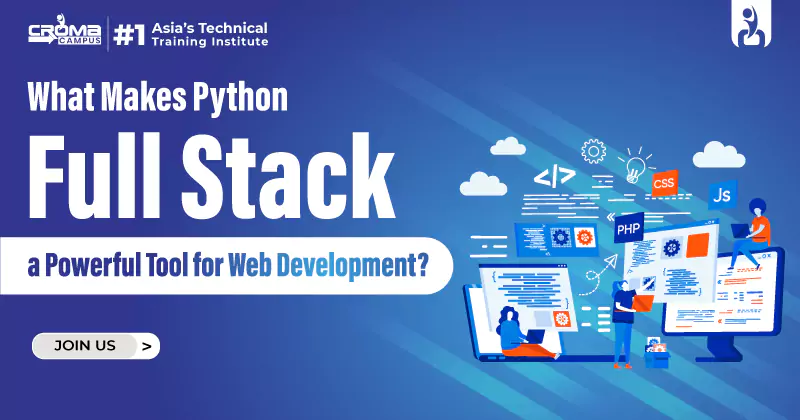
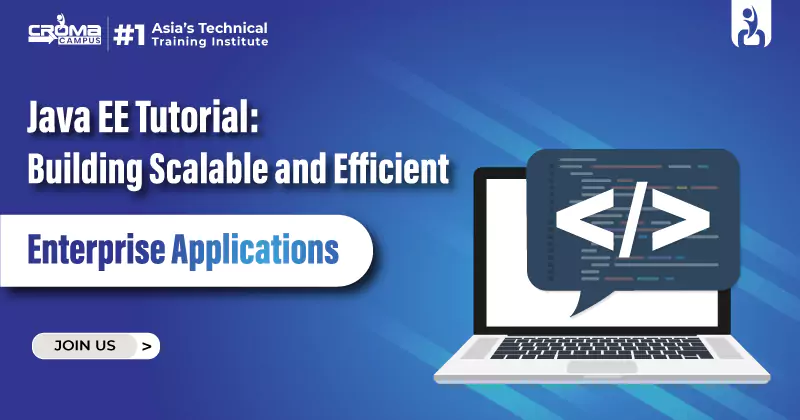
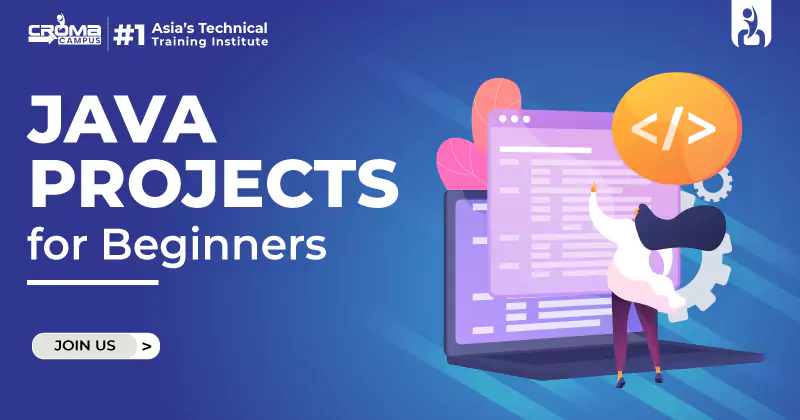
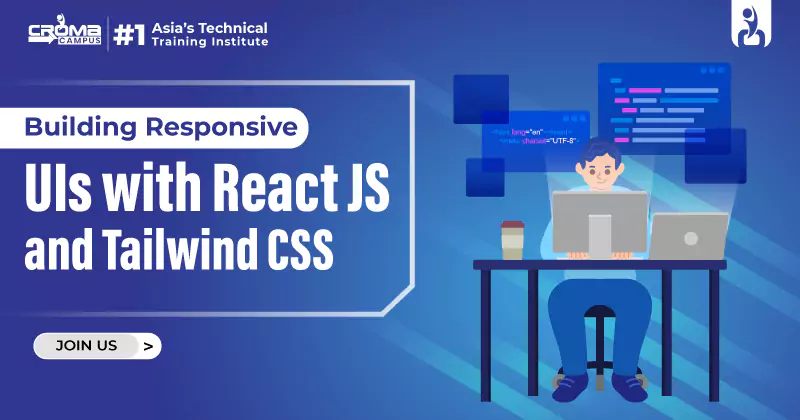

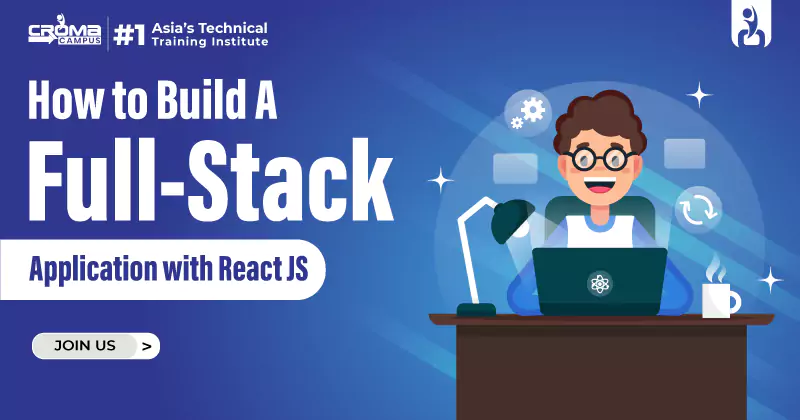
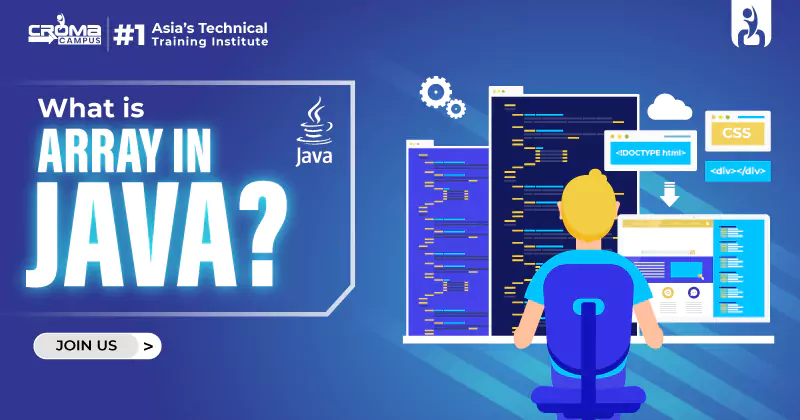
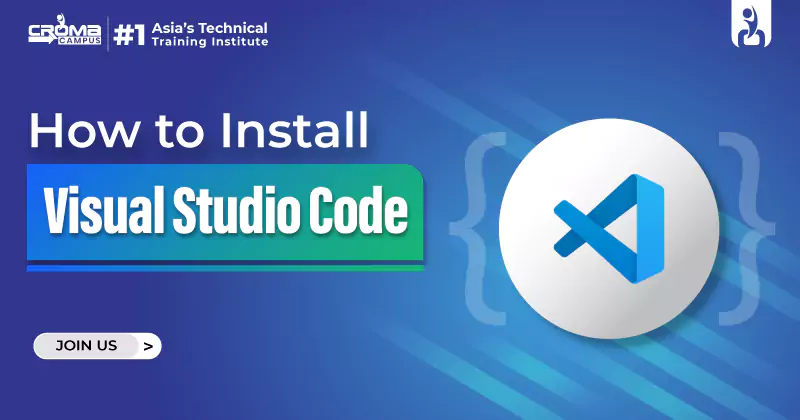









 Master in Cloud Computing Training
Master in Cloud Computing Training